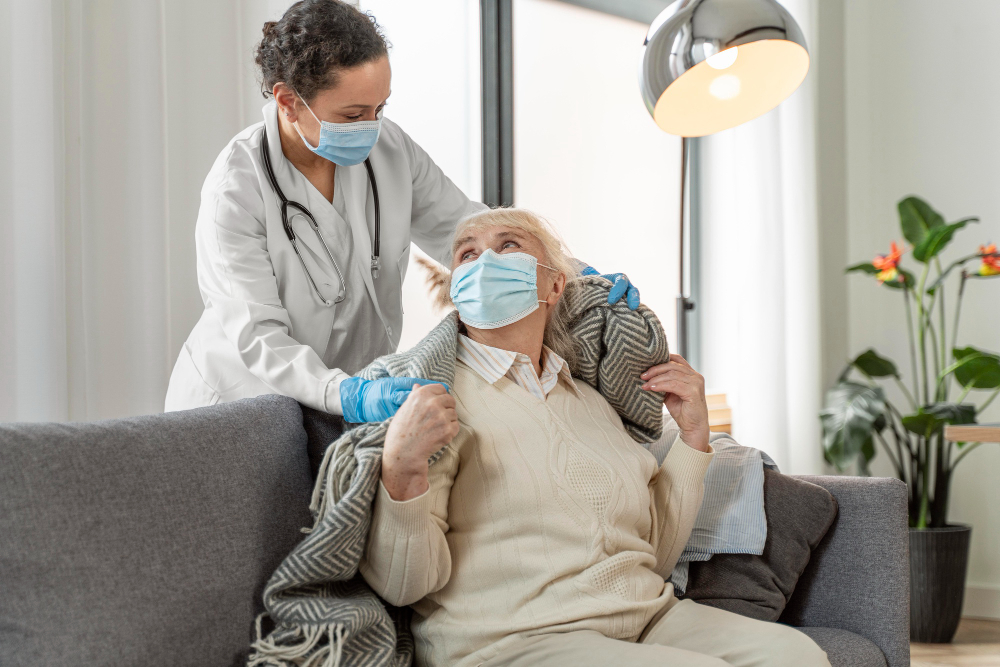
As winter arrives, it presents challenges for our senior loved ones. The colder months in India increase the risk of health issues, from common colds to severe conditions like bronchitis and pneumonia. This season necessitates proactive measures to ensure the well-being of our elderly.
Understanding common winter health issues for seniors is vital during the colder months. Ensuring our senior loved ones are well-prepared for winter becomes paramount for their overall health and well-being. Now, let's explore prevalent winter ailments affecting seniors in India.
Cold and Flu
Among the prevalent winter illnesses, cold and flu top the list. Symptoms include fevers, chills, a runny nose, sore throat, and body aches. While rest and over-the-counter medications often bring relief, persistent symptoms for more than five days warrant a doctor's consultation. Elder Care Service providers in Kolkata offer doctor’s assistance services in the comfort of a home that can be availed of when necessary.
Bronchitis
Characterized by airway inflammation, bronchitis manifests with symptoms such as coughing, wheezing, shortness of breath, and chest pain. Immediate medical attention is crucial for seniors experiencing these symptoms.
Asthma
A long-term inflammatory lung disease, asthma presents symptoms like coughing, chest tightness, shortness of breath, and wheezing. Treatment typically involves bronchodilators and inhalers.
Sinusitis
Inflammation of the sinus mucous membrane results in symptoms such as headaches, congestion, and facial pain.
Pneumonia
A severe lung infection caused by viruses, bacteria, or fungi, pneumonia requires prompt medical attention, possibly hospitalization. Symptoms include fever, shortness of breath, coughing, and chest pain, with treatment involving antibiotics and rest.
Layered Dressing
Seniors should dress in layers using comfortable, loose cotton and woollen clothing, paired with socks and caps to trap heat and protect against the cold.
Stay Indoors
Encourage seniors to stay indoors during winter to shield themselves from harsh weather conditions.
Hydration
Combat the increased risks of dehydration in winter by ensuring seniors drink enough water. Avoid caffeinated and alcoholic beverages, as they can contribute to dehydration.
Healthy Eating
Promote a balanced, nutritious diet rich in vitamins and minerals to support overall health during winter.
Exercise
Encourage light indoor exercises to keep seniors active. If possible, outdoor activities like brisk walking are beneficial, provided seniors are appropriately dressed. If your seniors are under the care of professional caregivers ensure they accompany seniors outside to prevent mishaps.
Adequate Sleep
Ensure seniors get 7-8 hours of sleep daily to promote overall health and prevent potential health issues.
These comprehensive winter care tips aim to safeguard the well-being of our senior loved ones during the challenging winter season. Regular communication with doctors and timely vaccinations against flu and pneumonia are vital components of their winter health regimen. By implementing these measures, we can collectively contribute to ensuring the health and comfort of our elderly during the colder months.